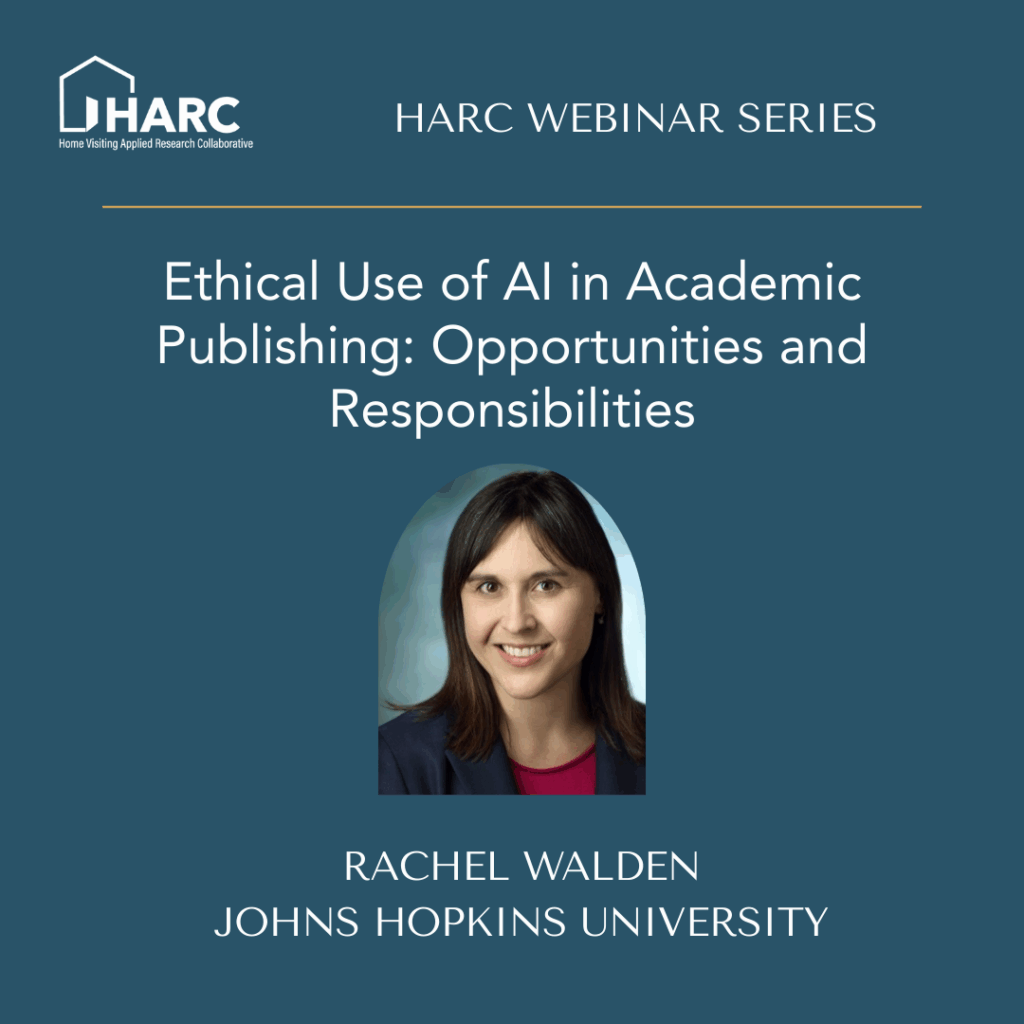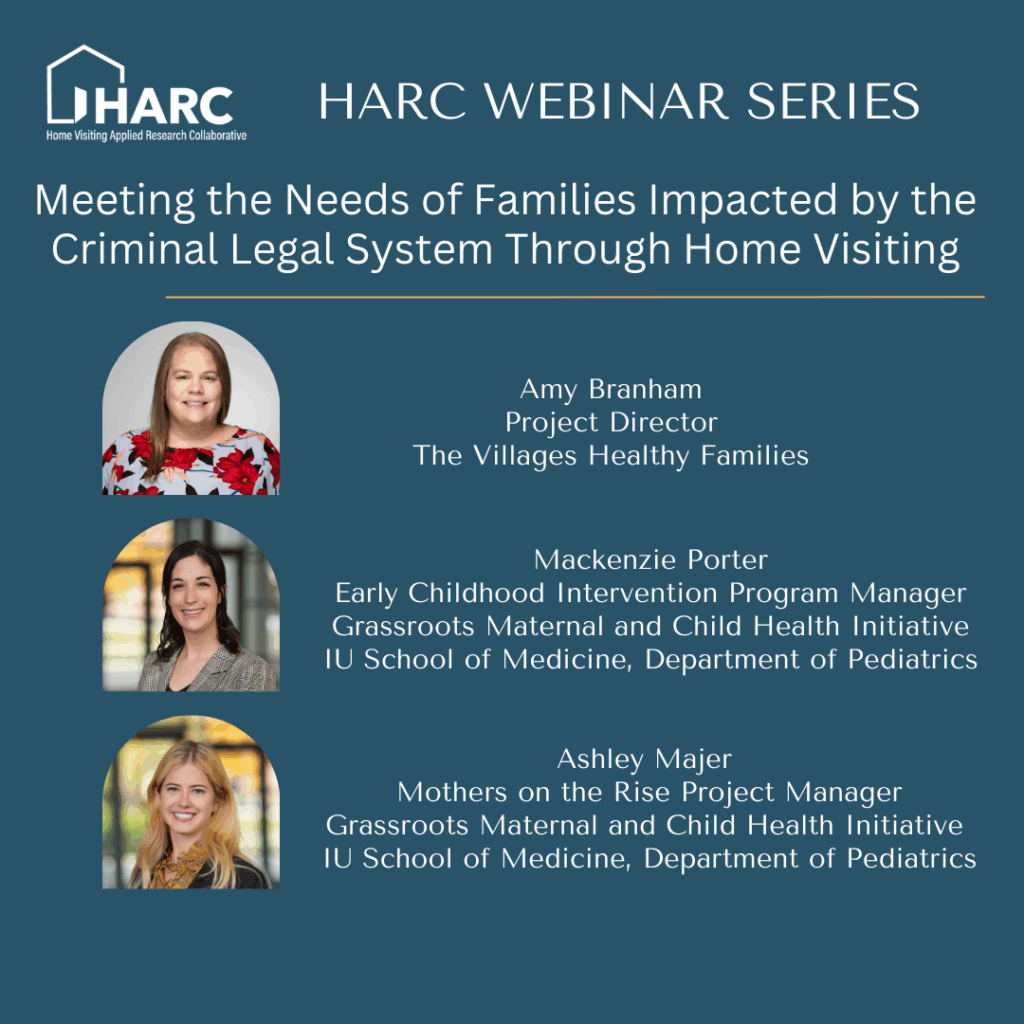HARC Webinars

Ethical Use of AI in Academic Publishing: Opportunities and Responsibilities
February 24th, 2026 at 12pm ET
This webinar will explore how researchers can responsibly incorporate AI into their academic workflows. Topics include navigating journal policies, understanding authorship standards, and maintaining scholarly integrity while using generative AI tools to support written work.

Meeting the Needs of Families Impacted by the Criminal Legal System through Home Visiting
Tuesday, March 10th, 12-1pm ET